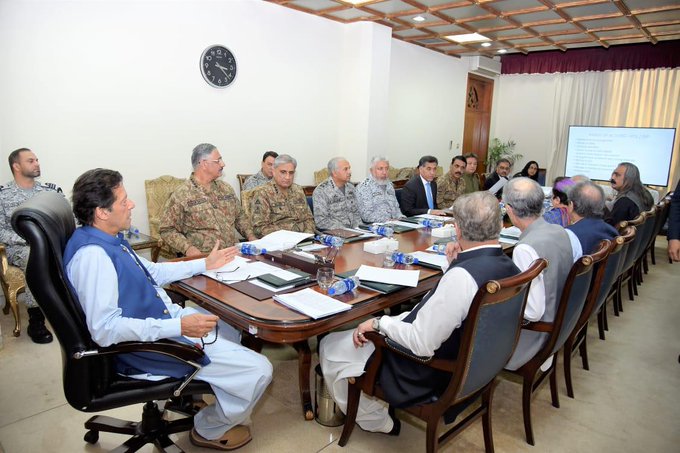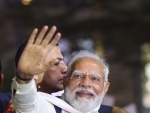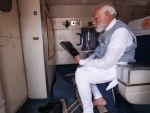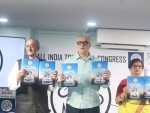
Pakistan expels Indian envoy, downgrade all bilateral trade with India following Modi's Kashmir googly
Islamabad, Aug 7 (IBNS): Just a day after the Indian government took major steps in Kashmir like revoking Article 370 of the Constitution which withdrew the special status given to Jammu and Kashmir and bifurcated the state into two Union Territories, Pakistan on Wednesday expelled Indian High Commissioner Ajay Bisaria.
Pakistan also decided to downgrade all bilateral trade with India.
Several major decisions were taken by the National Security Committee (NSC) in view of the recent developments regarding occupied Kashmir like resolving to downgrade Pakistan's diplomatic relations and suspend all bilateral trade with India.
The meeting was presided over by PM Imran Khan.
1-Downgrading of diplomatic relations with India.
— Govt of Pakistan (@pid_gov) August 7, 2019
2-Suspension of bilateral trade with India.
3-Review of bilateral arrangements.
4-Matter to be taken to UN, including the Security Council.
5-14th of August to be observed in solidarity with brave
Kashmiris. #StandwithKashmir pic.twitter.com/v06GmMc5lG
Pakistan also said it would move the United Nation's Security Council against the scrapping of Article 370 by India, said reports.
"PM directed that all diplomatic channels be activated to expose brutal Indian racist regime, design and human rights violations," a statement issued after the meeting said.
Major takeaway from Pakistan Parliament Joint session:
1. Imran Khan didn’t come to Parliament.
2. 370 was not part of the Agenda of joint session.
3. After opposition intervention 370 was added to the agenda.
4. From ruling party Sheerin Mazari spoke and attacked opposition instead of talking on 370.
5. After this opposition walked out.
6. With great difficulties session started again and Imran also joined.
7. Speaker held no consultation with any leader before making agenda of the business.
8. After session Parliamentarians went to speakers and suggested we need strong session, can’t be causal like today.
According to observers it shows how causal they are in dealing with one of the biggest issues of their country.
Development in India this week:
After the Upper House clearance in India, the Lok Sabha on Tuesday passed the bill to bifurcate the state of Jammu and Kashmir into two Union Territories.
The Lower House passed the Bill reorganising Jammu and Kashmir by two-thirds majority in its favour. It also passed Jammu and Kashmir Reservation Bill.
Speaking on Article 370, Union Home Minister Amit Shah said: "Article 370 had put doubts in the mind of people that Kashmir is a part of India."
"What have the people of Jammu and Kashmir got from Article 370--nothing," said Amit Shah adding: "It has only encouraged terrorism."
Shah stated, "I want to state that J&K is an inalienable part of India. There are no two versions about that."
Shah said that for 70 years, people of India have harboured this aspiration in their hearts that Kashmir must be an integral part of India. Article 370 was the only roadblock to realize this goal.
He said a historic blunder has been corrected and a new Kashmir would be built out of the scrapping of the Article 370.
In a landmark day which witnessed day-long debates, the Rajya Sabha on Monday last passed the Jammu & Kashmir Reorganisation Bill, 2019 which proposed to bifurcate the terror-hit northern state into two Union Territories - J&K, a Union Territory with Legislative Assembly, and Ladakh, a UT without Legislative Assembly.
Also the Modi government scrapped Article 35 A and Article 370 which were used to give Jammu and Kashmir a special status.
Article 35A of the Indian Constitution allowed the Jammu and Kashmir state's legislature to define “permanent residents” of the state and also provided special rights and privileges to those permanent residents.
Article 370 allowed Jammu and Kashmir to have its own constitution, flag and right to handle its own laws except on matters that impact national security.
Support Our Journalism
We cannot do without you.. your contribution supports unbiased journalism
IBNS is not driven by any ism- not wokeism, not racism, not skewed secularism, not hyper right-wing or left liberal ideals, nor by any hardline religious beliefs or hyper nationalism. We want to serve you good old objective news, as they are. We do not judge or preach. We let people decide for themselves. We only try to present factual and well-sourced news.







